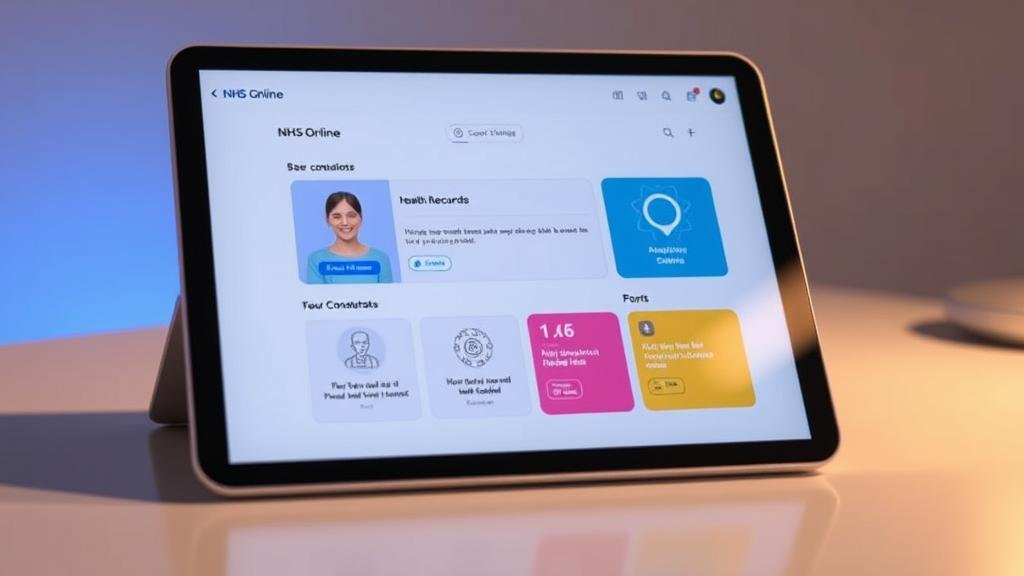UK’s New Path: Analyzing the Prime Minister’s Ambitious Reforms for NHS, Trade, and National Security
After a period of anticipation, the new Prime Minister has unveiled a comprehensive and ambitious agenda for the UK. This new chapter in UK policy is a three-pronged strategy focused on sweeping reforms in healthcare, international trade, and national security. As your trusted source for financial insights, we’re here to dissect these policies and what they mean for the country.
These are not minor tweaks; they are significant policy shifts with far-reaching implications, from your local GP to the UK’s role on the global stage. The initial reactions have been mixed, with both praise for the bold vision and concerns about the potential risks. Is this the catalyst for a stronger UK, or a high-stakes gamble? Let’s analyze the details.

A Strategic Three-Pronged Approach
The government’s new agenda is built on three core pillars: a radical overhaul of the NHS, a significant new trade mission to India, and a reinforced national security strategy.

1. Modernizing the NHS for the 21st Century
The first key policy is a major digital transformation of the National Health Service (NHS). The centerpiece of this plan is “NHS Online,” a new platform projected for a 2027 launch, designed to bring the UK’s public services into the digital age. Here’s what the plan entails:
- A centralized digital hub: Book appointments, access your health records, and communicate with your doctor through a single online platform.
- AI-powered diagnostics: The government is investing in artificial intelligence to assist in the analysis of test results, aiming for faster and more accurate diagnoses.
- Expanded telemedicine services: Increased access to video consultations with GPs, designed to improve healthcare accessibility for remote and underserved areas.
While a more efficient, digitized NHS holds promise for reducing waiting lists and improving patient care, it also raises important questions about data privacy and the digital divide. The impact on household healthcare costs and accessibility for all citizens will be a critical area to monitor.

2. The UK-India Trade Mission: Strengthening Global Partnerships
In a significant move to bolster the UK’s post-Brexit global trade relationships, the Prime Minister is leading a delegation of 125 CEOs and entrepreneurs to India. This “Global Britain” initiative aims to forge stronger economic ties and secure new trade agreements with one of the world’s fastest-growing economies. The mission’s objectives are to:
- Expand export markets: Open up new opportunities for British goods and services.
- Attract foreign investment: Position the UK as a prime destination for Indian companies to invest and grow.
- Promote collaboration: Foster partnerships in key sectors like technology and research.
The potential economic benefits of this trade mission are substantial, but success is not guaranteed. The outcome of this ambitious project will be a key indicator for the future of the UK economy.

3. A New National Security Strategy
The third pillar of the new agenda is a renewed focus on national security. In response to the current global landscape, the government is aiming to project an image of strength and stability, introducing a new National Security Strategy. The key components of this strategy include:
- Increased defence spending: A commitment to a “significant” increase in the defence budget.
- Military modernization: Investment in new technology and equipment for the armed forces.
- Strengthening alliances: Reaffirming commitments to NATO and other international partners.
This enhanced security posture is designed to reassure the public and the UK’s allies, but it will come at a significant cost, which will ultimately be borne by the taxpayer.
The Impact on UK Citizens
What do these high-level policies mean for the everyday lives of UK residents?
- Healthcare: The “NHS Online” platform could revolutionize how you access healthcare, offering the convenience of booking appointments and managing records from home. However, the transition to a digital-first system may present challenges.
- Jobs and the Economy: A successful UK-India trade agreement has the potential to create new jobs and stimulate economic growth. However, it may also increase competition for some UK businesses.
- Personal Finances: The increased spending on national security will need to be funded, which could lead to future changes in taxation or government borrowing. We will continue to analyze and report on how these fiscal policies may affect your finances.
The Road Ahead: An Ambitious Gamble
The Prime Minister’s new agenda is a bold and ambitious gamble. The success of these reforms will depend on effective execution and the ability to navigate a challenging economic landscape.
Despite the challenges, these policies present significant opportunities to create a more efficient NHS, a stronger economy, and a more secure UK. The key will be in the implementation. We will continue to provide in-depth analysis of these developments. Stay tuned for our expert insights.
